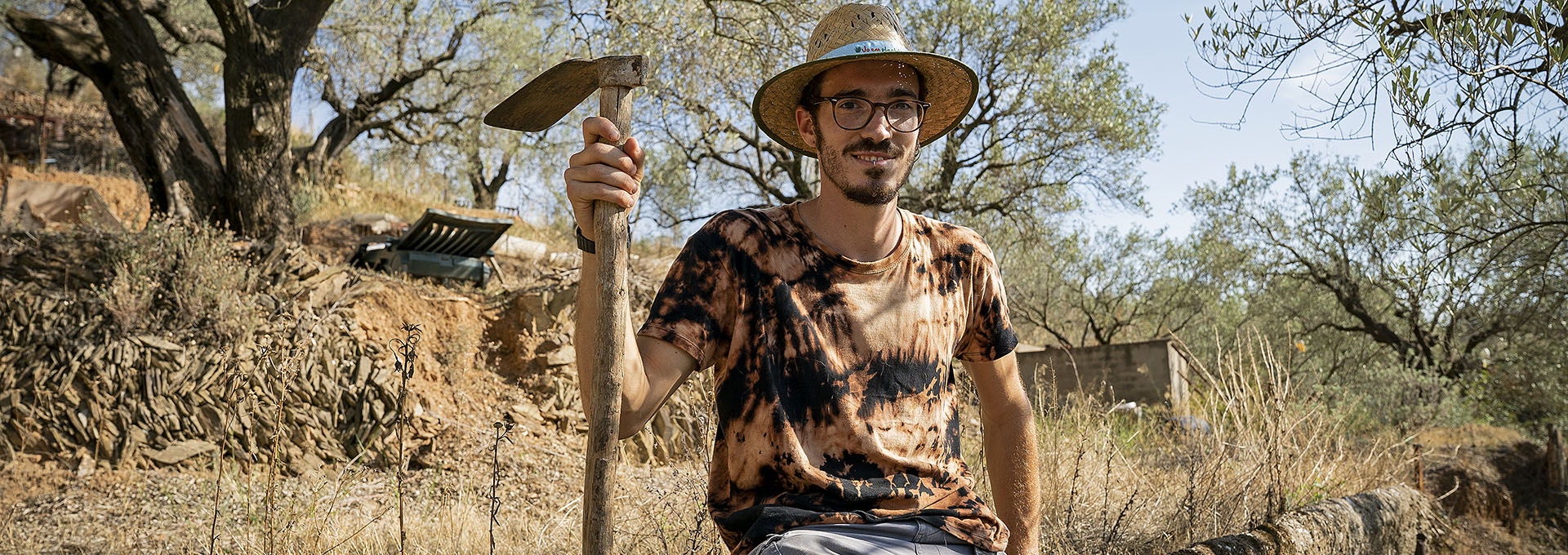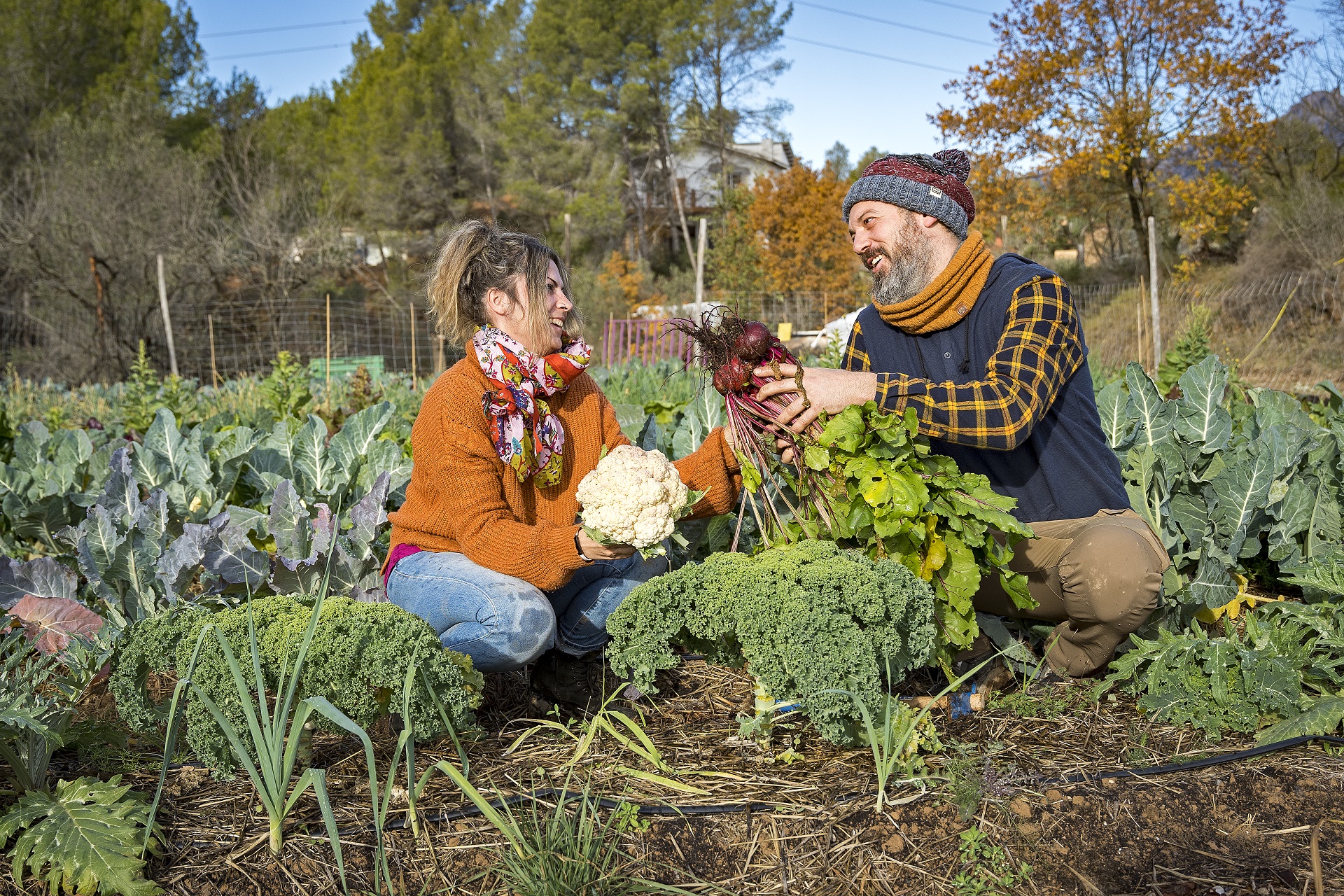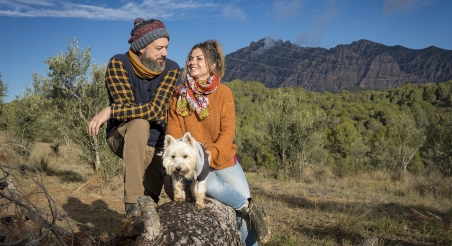The increasing ageing of farmers working in the Catalan countryside is a reality that does not go unnoticed. However, the massive loss of agricultural land in the last two decades, which according to data from the Generalitat de Catalunya amounts to around 100,000 hectares, is an alarming fact that highlights the urgent need to understand and address this problem. To make known the magnitude of the problem and identify possible solutions, a new analysis report by the Diputació de Barcelona makes it possible to identify the agricultural land that is currently abandoned or disused in the Barcelona districts.
According to this study, entitled "All This can be Yours", the loss of agricultural land is a problem that has been happening for decades. Between 1956 and 2018, the arable surface of the province of Barcelona was reduced by 120,500 hectares, equivalent to an average annual decrease of 2,000 hectares. These alarming figures have prompted an in-depth analysis to identify the amount of abandoned and disused land that could be recovered in Barcelona's districts.
The most prominent data in the report reveal that in the Barcelona counties, more than 55,000 hectares could be recovered for food production. This area represents approximately 8.1% of the undeveloped surface of the demarcation of Barcelona. Of this surface, 84.4% is currently catalogued in the Geographical Information System of Agricultural Plots (SIGPAC) as pastures and forests, although in the past it was used for the cultivation of fruit trees, cereals, orchards and other crops. The remaining 15.6% is made up of land registered as crops in disuse, abandoned or not registered, and represents 8,626 hectares suitable for food production.
The counties that stand out in terms of land recovery potential for crops are Bages, with 7,797 hectares in disuse, Anoia, with 7,060 hectares, and Alt Penedès, with 6,662 hectares recoverable. These areas could be used to start new businesses and food production projects.
The Montserrat Rural Park becomes the agricultural park with the greatest potential for land recovery, with 4,951 hectares in disuse. Of these, 989 hectares are considered particularly suitable for companies focused on the cultivation of olive trees and other fruit trees, and even the production of cereals and orchards.
In addition, the report highlights the existence of land affected by urban plans that have not yet been developed and that could be dedicated to food production. These lands occupy approximately 1,598 hectares of the total of 55,054 potentially recoverable hectares in the demarcation of Barcelona, which represents 3%.
The origin of the data
To obtain this data, the authors of the report "All this can be yours" have analyzed how land use has changed in the province of Barcelona since the 1950s, so they have compared data from SIGPAC with a map originating from the 1956 orthophoto of the province of Barcelona. They have also examined the state of urban planning in the territory by consulting the Urban Map of Catalonia (MUC) and the Areas of Natural Interest Plan (PEIN). To understand the evolution of the primary sector, they have used data from the Single Agricultural Declaration (DUN). These records have allowed them to understand the types of crops grown and the actual uses of the land, as well as its suitability for food production. In this sense, they have taken into account two particularly significant aspects: the degree of inclination of the land and the surface area of the estates. This exhaustive collection of data has made it possible to identify disused land and assess its suitability for food production.
A considerable agricultural potential
The detailed analysis of these data suggests that Barcelona's districts have considerable agricultural potential that could be recovered to promote new productive projects and improve food security in the territory. This information is not only relevant for people looking to establish new agricultural projects, but also for those who wish to expand their holdings. Through the creation of agricultural parks and initiatives such as the Network of Land Banks of Catalonia, the Barcelona Provincial Council seeks to protect and revitalize abandoned or disused agricultural areas, preserving the rural landscape and agrobiodiversity.
About the BCN Smart Rural program land banks
The Network of Land Banks of Catalonia is a pioneering initiative in Europe that the Diputació de Barcelona co-finances since 2018 as part of BCN Smart Rural. It does so with a triple objective: to recover disused farmland, to facilitate generational succession in the countryside and to encourage agricultural entrepreneurship. Currently, the network hosts 10 land banks distributed throughout the country, although most of the actions are focused on six of the existing agricultural parks in the Barcelona districts: the Montserrat Rural Park, the Baix Llobregat Agrarian Park, the Baixa Tordera Agrarian Space, the Òdena Basin Agrarian Park, the Five Sènies-Mata-Valldeix Agrarian Space and the Catalan Pre-Pyrenees Rural Park.
The services offered by the Land Banks Network are free and include the facilitation of contact between the two parties, technical support, legal advice, contract formalization, continuing education and other actions that directly benefit people owners and lessees of agricultural estates. But this tool also has a very positive impact on a social and environmental scale, as it contributes to reducing the risk of forest fires, preserving the landscape, revitalizing the rural world and facilitating the consumption of local products to combat climate change.
For more information about this data, please contact Pere Navarro and Daniel Farré, land engineers and GIS experts from the BCN Smart Rural program.
— BCN Smart Rural Editorial —




